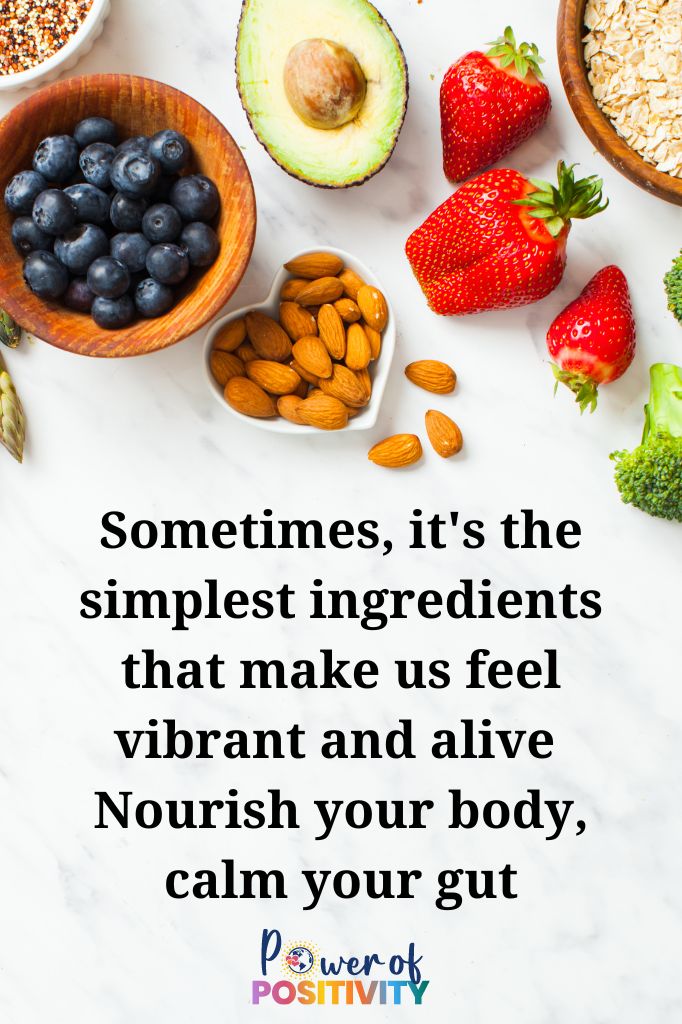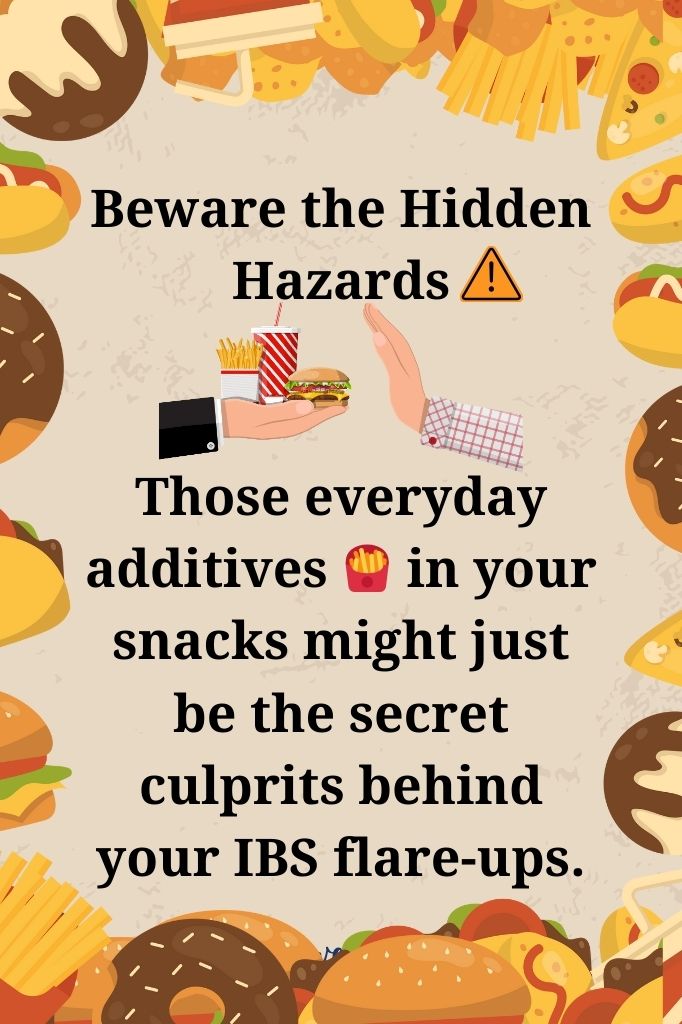If you’re living with irritable bowel syndrome (IBS), the daily struggle of managing symptoms can feel overwhelming. Knowing which foods to avoid with irritable bowel syndrome can be life-changing, yet confusing.
That is where we come in. In this guide, you’ll discover the key foods that could be worsening your IBS. By making small adjustments, you can take control and start feeling better—without completely overhauling your diet.
Let’s dive in and make life a little easier.
Understanding FODMAPs and Their Impact on IBS

IBS is a common gastrointestinal disorder, and FODMAPs—short-chain carbohydrates that are poorly absorbed in the small intestine—often trigger symptoms in those affected. The term FODMAP stands for Fermentable Oligosaccharides, Disaccharides, Monosaccharides, and Polyols.
These carbohydrates include sugars such as fructose, lactose, and certain types of fiber that the body struggles to digest.
For people with irritable bowel syndrome IBS, consuming high-FODMAP foods can trigger symptoms like bloating, gas, diarrhea, and constipation because these foods ferment in the gut, leading to increased water and gas production.
How Do FODMAPs Affect IBS?
FODMAPs, when fermented by gut bacteria, can aggravate IBS symptoms in people by causing the intestine to absorb too much water and produce gas. This results in bloating, abdominal discomfort, and changes in bowel habits. The malabsorption of these carbohydrates varies by type:
- Oligosaccharides (found in wheat, onions, and garlic) lack the enzymes needed for absorption.
- Disaccharides (like lactose) are poorly absorbed in people with lactase deficiency.
- Monosaccharides (like fructose) are malabsorbed when consumed in excess.
- Polyols (found in artificial sweeteners and some fruits) are passively absorbed, leading to digestive distress.
The Phases of a Low-FODMAP Diet

The low-FODMAP diet consists of three key phases aimed at managing IBS symptoms:
- Elimination Phase: All high-FODMAP foods are removed from the diet for about 2-6 weeks. This helps calm symptoms by reducing the intake of trigger foods.
- Reintroduction Phase: Once symptoms are under control, high-FODMAP foods are reintroduced one at a time to identify which specific FODMAPs trigger IBS symptoms. Each food is tested over a period of several days while monitoring the body’s response.
- Personalization Phase: After identifying the problematic FODMAPs, the goal is to maintain a long-term diet that avoids only the foods that trigger symptoms, allowing for more dietary freedom while keeping IBS under control.
By following this approach, most people with IBS see a significant improvement in their symptoms, though it is essential to work with a dietitian or healthcare provider for proper implementation.
Top Foods to Avoid With Irritable Bowel Syndrome
- Alcohol: Causes inflammation and increases stomach acid production, disrupting digestion.
- Dairy Products: Lactose can lead to gas, bloating, and diarrhea in those with lactose intolerance.
- Fruits with Pits: Peaches, cherries, dried fruits and other pit fruits contain fructose, which is poorly absorbed and worsens IBS symptoms.
- Red Meat: Difficult to digest, it can cause discomfort, especially when consumed in large amounts.
- Chocolate: Contains caffeine and sugar, both of which can trigger IBS symptoms like bloating and diarrhea.
- Artificial Sweeteners: Sorbitol, xylitol and high fructose corn syrup are poorly absorbed, leading to gas and diarrhea.
- Fried and Fatty Foods: These are high in fat, making them hard to digest and causing IBS flare-ups.
- Processed Foods: Often contain additives and artificial sweeteners that irritate the gut.
- Wheat: Contains fructans, a type of FODMAP, and can cause bloating and constipation.
- Carbonated Drinks: Increase intestinal gas and bloating, contributing to IBS discomfort.
- Caffeinated Drinks: Coffee and energy drinks can trigger diarrhea in IBS patients.
- Cruciferous Vegetables: Broccoli, cauliflower, and Brussels sprouts contain indigestible fibers, causing gas and bloating.
- Beans and Legumes: Hard to digest, they often lead to excessive gas and bloating.
- Chewing Gum: Contains artificial sweeteners and leads to swallowed air, causing gas.
- Spicy Food: Chili peppers contain capsaicin, which irritates the digestive tract and worsens pain.
- High-Fiber Foods: Soluble fiber helps some but worsens symptoms for others by increasing bloating.
- Corn: Hard to digest, it often causes bloating and discomfort in IBS patients.
- Onions and Garlic: High in FODMAPs, they frequently trigger IBS symptoms like bloating and abdominal pain.
- High-Fructose Fruits: Apples, pears, and watermelon contain fructose, leading to gas and diarrhea.
- Soda: The carbonation leads to increased gas, while sugar or artificial sweeteners further irritate the gut.
High-FODMAP Fruits and Vegetables to Avoid

These fruits and vegetables are known to be common triggers for IBS because of their high FODMAP content, which can lead to fermentation and gas buildup in the intestines.
Avoiding or limiting them can help manage symptoms effectively.
High-FODMAP Fruits
- Apples
- Watermelon
- Cherries
- Pears
- Mangoes
- Plums
- Blackberries
- Peaches
High-FODMAP Vegetables
- Onions
- Garlic
- Mushrooms
- Cauliflower
- Asparagus
- Artichokes
- Beets
- Snow Peas
Common Food Additives That Can Trigger IBS

These additives are commonly found in ultra-processed foods, and avoiding them can help manage IBS symptoms. Always check labels for these ingredients to minimize flare-ups.
Sweeteners
- Sorbitol: This sugar alcohol is found in sugar-free products like gum, candy, and some medications. It draws water into the intestines, which can lead to diarrhea and bloating.
- Mannitol: Another polyol, commonly used as a sweetener in diet foods, can cause similar issues. It ferments in the gut, leading to increased gas, bloating, and digestive pain, especially for those with IBS.
Preservatives in Processed Foods
- Emulsifiers: These are found in many processed foods, such as salad dressings, sauces, and baked goods. They can disrupt the gut’s protective lining, triggering IBS symptoms like bloating and cramps.
- Artificial Sweeteners: Sweeteners like aspartame and sucralose are commonly added to diet products. Although they don’t contain FODMAPs, they can alter gut bacteria, leading to gastrointestinal issues in IBS patients.
- Sodium Nitrite: Found in processed meats, sodium nitrite can irritate the gastrointestinal tract and worsen IBS symptoms, particularly bloating and abdominal pain.
Lifestyle Changes to Complement Your IBS Diet
Stress Management and Exercise

Managing stress is key to controlling IBS symptoms. High stress levels are linked to IBS flare-ups, so incorporating stress-reduction techniques into your daily routine can be beneficial.
Practices like deep breathing, meditation, yoga, or progressive muscle relaxation help reduce the physical impact of stress on your digestive system.
Engaging in activities that bring joy and relaxation, such as hobbies or spending time with loved ones, can also help manage stress effectively.
Hydration and Small Meal Strategies
Foods You Can Safely Eat with IBS
When managing IBS, focusing on low-FODMAP foods can help alleviate symptoms. Here is a list of safe and nutritious foods that fit within the low-FODMAP framework:
Low-FODMAP Alternatives (Gluten-Free Grains, Lactose-Free Dairy)

- Gluten-Free Grains: Safe options include rice, quinoa, oats, and corn. These grains are naturally gluten-free and low in FODMAPs, making them great for IBS management.
- Lactose-Free Dairy: Lactose can trigger IBS symptoms, so opt for lactose-free milk, yogurt, cheeses like Brie and Parmesan, and even ice cream. Plant-based alternatives such as almond milk and oat milk are also safe.
Safe Fruits and Vegetables
- Low-FODMAP Fruits: Enjoy fruits like bananas, oranges, kiwi, strawberries, grapes, and pineapple. These fruits are easier on the gut and less likely to cause bloating or discomfort.
- Low-FODMAP Vegetables: Vegetables such as zucchini, bell peppers, carrots, green beans, spinach, and cucumbers are safe for most IBS sufferers. These veggies are low in fermentable carbohydrates.
Lean Proteins and Healthy Fats
- Lean Proteins: Chicken, turkey, fish, eggs, and firm tofu are all excellent protein options that are naturally low in FODMAPs. These proteins provide essential nutrients without triggering symptoms.
- Healthy Fats: Incorporate extra virgin olive oil, avocado oil, walnuts, and chia seeds into your meals. These fats support overall health without irritating the gut.
FAQs
Can IBS cause symptoms even if I eat “safe” foods?
Yes, even low-FODMAP or safe foods can sometimes trigger IBS symptoms. This is often due to the size of the meal, how fast you eat, or other factors like stress. Eating small, frequent meals and slowing down during meals can help prevent symptoms.
Is exercise important for managing IBS?
Regular physical activity, such as walking, yoga, or swimming, can improve digestion and reduce stress, both of which are beneficial for IBS management. Aim for at least 30 minutes of moderate exercise most days.
Can fiber make IBS symptoms worse?
Not all fiber is the same. While soluble fiber found in foods like oats and psyllium can help, insoluble fiber (such as that in whole grains) may worsen bloating or diarrhea. It is important to tailor your fiber intake based on your IBS symptoms.
How can stress impact IBS?
Stress is a major trigger for IBS symptoms. Using relaxation techniques like meditation or yoga, as well as addressing stress through lifestyle adjustments, can significantly reduce flare-ups and improve overall gut health.
Final Thoughts
Managing IBS through diet requires careful attention to food choices and portion sizes. Focusing on low-FODMAP alternatives, lean proteins, and safe fruits and vegetables can significantly reduce symptoms.
Pairing these dietary strategies with lifestyle changes, such as regular exercise and stress management, helps maintain a healthy digestive system.
While everyone’s IBS triggers are unique, this balanced approach can lead to better long-term management and improved quality of life.
The post Which Foods to Avoid With Irritable Bowel Syndrome? appeared first on Power of Positivity: Positive Thinking & Attitude.







